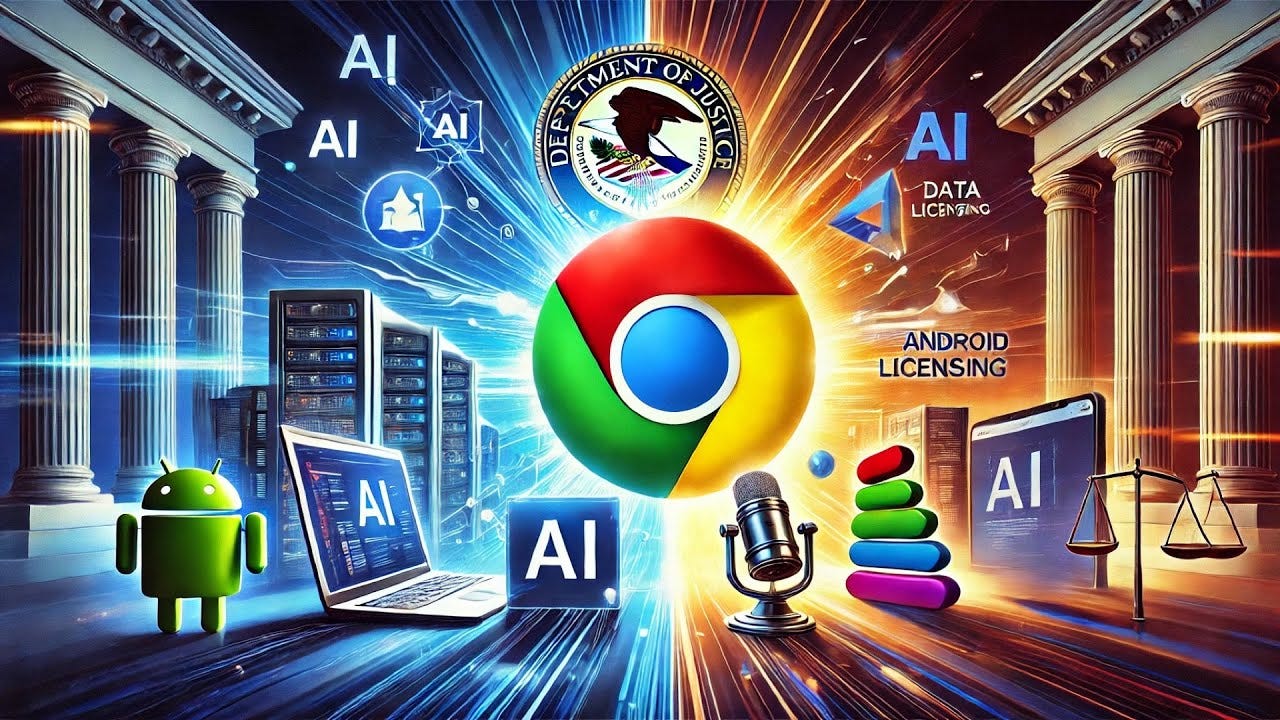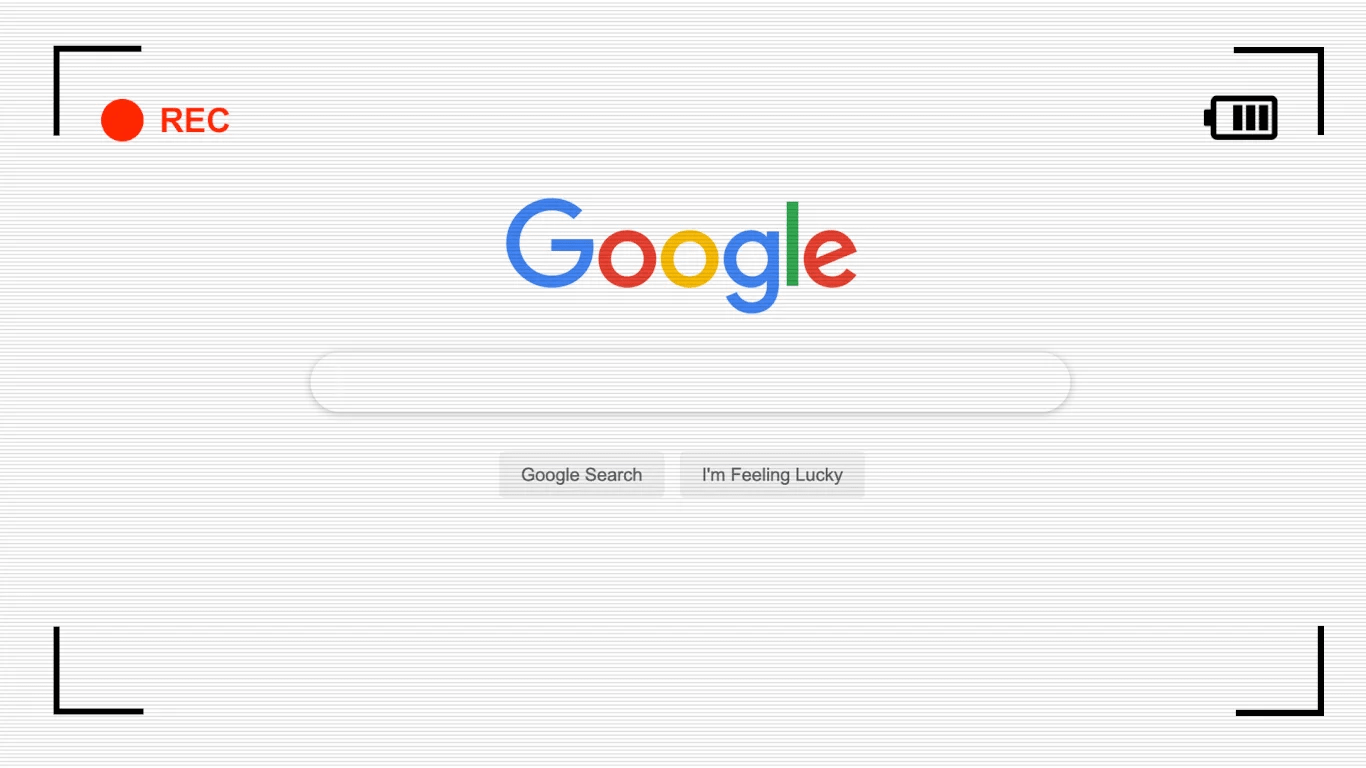AI: Google DOJ 'Remedies' phase with Chrome in spotlight. RTZ #547
...broad and deep implications for AI Tech Wave
The ‘Remedies’ phase of the Google DOJ actions approaches, as we’ve discussed earlier. As I said back in August,
“'structural vs behavioral' remedy debates ahead, with implications for the AI Tech Wave from the 'Mount Rushmore of antitrust'.
The remedies being considered are pretty seismic, even though they’ll take years to be litigated and finalized through the appeals processes.
The AP summarizes it in “US regulators seek to break up Google, forcing Chrome sale as part of monopoly punishment”:
“U.S. regulators want a federal judge to break up Google to prevent the company from continuing to squash competition through its dominant search engine after a court found it had maintained an abusive monopoly over the past decade.”
“The proposed breakup floated in a 23-page document filed late Wednesday by the U.S. Department of Justice calls for sweeping punishments that would include a sale of Google’s industry-leading Chrome web browser and impose restrictions to prevent Android from favoring its own search engine.”
“A sale of Chrome “will permanently stop Google’s control of this critical search access point and allow rival search engines the ability to access the browser that for many users is a gateway to the internet,” Justice Department lawyers argued in their filing.”
“Although regulators stopped short of demanding Google sell Android too, they asserted the judge should make it clear the company could still be required to divest its smartphone operating system if its oversight committee continues to see evidence of misconduct.”
There’s more. As Axios explains in “The legal struggle for Google's browser”:
“The Department of Justice is expected to present proposals today to limit Google's power in the wake of an August court ruling that the giant abused its search monopoly.”
“Why it matters: Google's leaders will continue to be at least distracted, and potentially immobilized, by the government's antitrust assault just as the firm faces the greatest challenge in its history from the OpenAI/Microsoft alliance.”
“State of play: The DOJ will ask the presiding judge to force Google to sell off or spin out the Chrome browser, according to a Bloomberg report.”
“It is also likely to urge the judge to demand that Google license its search results and data to third parties and competitors.”
"Break up Google" is one scenario that no longer seems to be in play, and the government has decided not to seek the sale or spinout of Google-owned Android, the world's most popular mobile operating system.”
LOTS of uncertainties ahead:
“No one really knows what a sale or spinoff would ultimately mean for Chrome and its massive user base.”
“Estimates of Chrome's market share vary, but they all give Chrome billions of users on mobile and desktop — and half or more of the global browser market.”
“Chrome is baked into the Android mobile operating system, and has long served as a key starting point for Google searches. More recently, it has become a way for Google to funnel users toward its Gemini AI services.”
“Owning Chrome lets Google follow users' online activity in ways that help it target the ads that make up the foundation of its business.”
And it’s not clear that ‘market remedies’ will work when the markets may not be big enough to find economically viable alternatives:
“Extracting Chrome from Google would require finding a buyer willing to pay up to $20 billion, per Bloomberg.”
“If Google tries to set Chrome up as an independent company, the product — currently distributed free and supported by Google's advertising profits — would need to find a revenue source.”
“Much of Chrome's popularity rests on the convenience of its integration with Google's search and other products.”
“The practical difficulty of a Chrome/Google divorce, along with the challenge of making the browser work as an independent business, have a lot of Silicon Valley observers scratching their heads.”
“As Daring Fireball author John Gruber put it: "It's like saying I have to sell my left foot. It's very valuable to me, but of no value to anyone on its own."
Google of course is reacting as predicted:
“What they're saying: "The DOJ continues to push a radical agenda that goes far beyond the legal issues in this case," Lee-Anne Mulholland, Google's vice president for regulatory affairs, said in a statement.”
"The government putting its thumb on the scale in these ways would harm consumers, developers and American technological leadership at precisely the moment it is most needed."
Ironically, it’s back to ‘browsers’ in historical terms, as far as the DOJ is concerned”
“What we're watching: The parallels to the Microsoft case about 25 years ago are spooky, and go way beyond the simple fact that both cases ended up centering on web browsers.”
“Microsoft spent so much time and energy fighting the government's antitrust case at the turn of the century that it loosened its grasp on the internet market a bit — leaving room for a small search startup named Google to thrive.”
“The rise of AI means the tech world is at the start of another vast platform shift, making this a perilous moment for Google to be at legal war with the U.S. government.”
With big potential implications for the Google/Apple relationship, as I’ve also discussed.
“It's too soon to know whether today's antitrust headaches are now similarly allowing OpenAI to play David to Google's Goliath — but that possibility is likely to be troubling Google leaders.”
It’s all going to take time to figure out:
“What's next: Whatever happens, expect it to take forever.”
“The court will hold "remedy phase" hearings in April 2025, with the judge expected to rule over the summer. Then Google will likely appeal, and that process could take years more.”
“At the same time, new DOJ management by the incoming Trump administration will get a chance to reevaluate its strategies. (The case was originally filed near the end of Trump's first term.)”
“There's always a chance for the government and Google to reach a settlement and put the case to rest.”
“Meanwhile, a second major DOJ antitrust suit against Google — filed in 2023, and focused on its control over the ad-tech market — continues to work its way through the courts.”
Google’s initial response is thunderous in its own right, stating “DOJ’s staggering proposal would hurt consumers and America’s global technological leadership”:
“As part of its lawsuit over how we distribute Search, the U.S. Department of Justice (DOJ) tonight filed a staggering proposal that seeks dramatic changes to Google services.”
“DOJ had a chance to propose remedies related to the issue in this case: search distribution agreements with Apple, Mozilla, smartphone OEMs, and wireless carriers.”
“Instead, DOJ chose to push a radical interventionist agenda that would harm Americans and America’s global technology leadership. DOJ’s wildly overbroad proposal goes miles beyond the Court’s decision. It would break a range of Google products — even beyond Search — that people love and find helpful in their everyday lives.”
And making it clear that Google intends to push back:
“As the Court said, Google offers “the industry’s highest quality search engine, which has earned Google the trust of hundreds of millions of daily users.” We’re still at the early stages of a long process and many of these demands are clearly far afield from what even the Court’s order contemplated. We’ll file our own proposals next month, and will make our broader case next year.”
All of this of course has broad and deep implications for the AI Tech Wave, as I’ve discussed before. While the actions above will take years, they will take valuable cycles of attention from Google’s senior management team for the intermediate term.
And that’s expensive in a world where AI is moving leaps and bounds. And Google itself is in a key position to benefit and lead what happens next with Gemini and so many other initiatives at Deepmind and elsewhere.
Legal actions can have powerful behavioral impacts on the power of defaults, as I’ve discussed.
Other tech companies of course face their own government actions here and abroad. So the regulatory environment, especially post election in the US, has important bearings on what happens in the AI world next. Stay tuned.
(NOTE: The discussions here are for information purposes only, and not meant as investment advice at any time. Thanks for joining us here)








